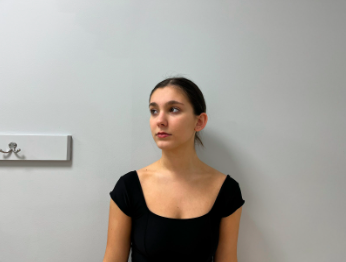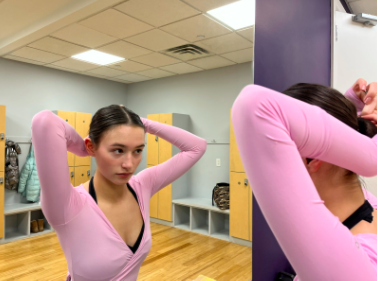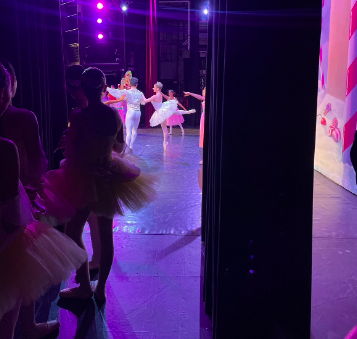Practice does not make perfect

Christina Meehan ’23 knows the pressure of striving for “perfection” at dance. Her opinion is that it’s best to appreciate your small accomplishments because those show your hard work and determination.
Watching a video of myself dancing, a series of thoughts run through my head: my foot is sickled and not turned out; my passe isn’t high enough and I’m not holding my back straight; my neck isn’t elongated and my arms and back aren’t engaged. So many dancers tend to be perfectionists because we have to be hyper-aware of our every movement and hold ourselves to extraordinary high standards. But the truth is, we made the decision to practice this extremely meticulous sport for hours on end every day.
The phrase “practice makes perfect” is used to convey that repetition of an activity or skill is the way to become proficient in it. But there are problems with this term.
The goal of “perfection” in athletics is a constant work in progress, as the majority of us are aware. Practice does not, however, make perfect when it comes to dancing. Even the most accomplished professional dancers will identify and criticize the flaws in their dancing, since the art and sport of dance is so distinctive and technically complex. Even with what most people would call “perfect technique,” professional ballet dancers will train for around 10 hours a day and in classes five to six days a week.

At times, dance can lose its enjoyable factor due to the continual pressure to be flawless, especially when you are working hard to improve and don’t see results right away. It can be discouraging, but it’s worthwhile because dance teaches the value of perseverance. I’m much better equipped to handle the frustration of struggling to grasp a concept in school thanks to dance. Additionally, when you do make progress, it’s incredibly fulfilling.
Ballet technique is a constant work in progress. I’ve been practicing ballet for more than 10 years, and I can confidently admit that I’m far from perfect. I have improved though. Dance has the exciting quality that you can constantly improve. Although it could seem daunting, this is what motivates you to keep pushing yourself.

Comparing yourself with others is a constant in dance and is the same for school. We all know the feeling of seeing another’s accomplishments and feeling less because of it. But it’s important to realize that too much comparison leads to unhappiness and low self-esteem. We become frustrated with ourselves for “not being good enough” and this can make you lose incentive to continue on with your passion.
It’s important to know that practice does not make perfect, but practice makes better. Although this phrase isn’t as catchy, it’s not healthy to strive for perfection when it’s not possible.

Associate Web Managing Editor Liora Perkins ’25 has had a passion for journalism since freshman year. Outside of school, Perkins enjoys dancing non-competitively...


















































